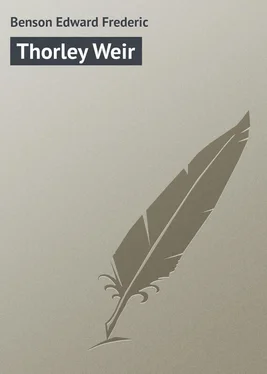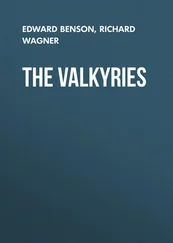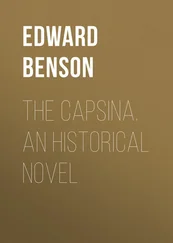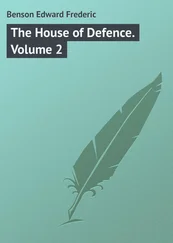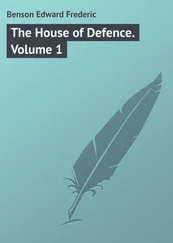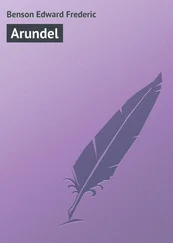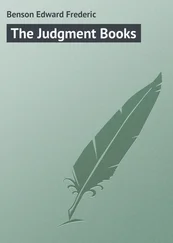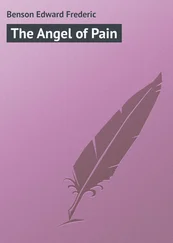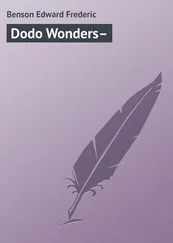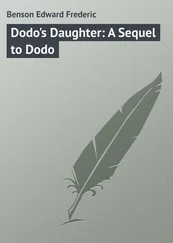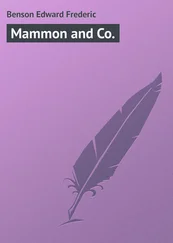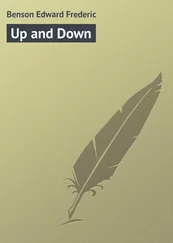Edward Benson - Thorley Weir
Здесь есть возможность читать онлайн «Edward Benson - Thorley Weir» — ознакомительный отрывок электронной книги совершенно бесплатно, а после прочтения отрывка купить полную версию. В некоторых случаях можно слушать аудио, скачать через торрент в формате fb2 и присутствует краткое содержание. Жанр: foreign_prose, на английском языке. Описание произведения, (предисловие) а так же отзывы посетителей доступны на портале библиотеки ЛибКат.
- Название:Thorley Weir
- Автор:
- Жанр:
- Год:неизвестен
- ISBN:нет данных
- Рейтинг книги:3 / 5. Голосов: 1
-
Избранное:Добавить в избранное
- Отзывы:
-
Ваша оценка:
- 60
- 1
- 2
- 3
- 4
- 5
Thorley Weir: краткое содержание, описание и аннотация
Предлагаем к чтению аннотацию, описание, краткое содержание или предисловие (зависит от того, что написал сам автор книги «Thorley Weir»). Если вы не нашли необходимую информацию о книге — напишите в комментариях, мы постараемся отыскать её.
Thorley Weir — читать онлайн ознакомительный отрывок
Ниже представлен текст книги, разбитый по страницам. Система сохранения места последней прочитанной страницы, позволяет с удобством читать онлайн бесплатно книгу «Thorley Weir», без необходимости каждый раз заново искать на чём Вы остановились. Поставьте закладку, и сможете в любой момент перейти на страницу, на которой закончили чтение.
Интервал:
Закладка:
"You have painted an admirable picture," continued the possible fairy, "and the handling of the most difficult part of all – of course you know I mean the lights and shadows on that delightful figure – is masterly. Of course there are faults, plenty of them, but you can see, and you can draw, and you can paint."
Craddock saw Charles' lip quiver, and heard that it cost him an effort to command his voice.
"Not really?" he stammered.
"Unless I am much mistaken, and it has been the business of my life to seek out those who can see and draw and paint. Now I don't know your name, and assuredly I have never seen your work before, and since it is my business also to know the names and the works of all young men who can paint, I imagine that you have your artistic début, so to speak, still in front of you. But I shall be exceedingly grateful to you if you will sell me your picture, straight away, here and now. And if you won't let me have it for fifty pounds, I shall have to offer you sixty."
Charles looked vaguely round, first at Craddock then at his picture, then at the spouting weir, almost expecting to see them melt, as is the manner of dreams, into some other farrago as fantastical as this, or dissolve altogether into a waking reality.
"Do you really mean you will give me fifty pounds for it," he asked.
"No: I will give you sixty. But don't touch it again. Take my word for it that it is finished. Or did you know that already?"
"Oh, yes," said the boy. "I finished it an hour ago. But I came back to make sure."
"Well, then, when you leave your encampment here, will you please send it to me at this address? That is to say, if I am to have the privilege of purchasing it."
This repetition gave reality to the interview: people in dreams were not so persistent, and Charles gave a little joyous laugh, as Craddock took a card out of his pocket and gave it to him.
"Or were you thinking of exhibiting it?" he asked.
"I was meaning to have a try with it at the autumn Exhibition of the 'Artists and Etchers,'" said Charles.
"I have no objection to that, provided you will let me have a little talk with you first, and put certain proposals before you."
He looked at the picture again, and saw more surely than ever its admirable quality. It had unity: it was a picture of a boy just about to plunge into a sunlit pool, not a boy, and a pool, and some sunlight, a mere pictorial map, or painted enumeration of objects. It was all tingling with freshness and vitality and the rapture of early achievement: no artist, however skilled, if he had outgrown his youthful enthusiasm could have done it like that, though he would easily have produced a work more technically faultless. Eagerness, though wonderfully controlled, burned in it; the joy of life shouted from it. And when he looked from it to the tall shy boy whose grey eyes had seen that, whose long fingers had handled the brushes that recorded it, he felt sure he would not go far wrong in his own interests in making a proposal to him that would seem to him fantastical in its encouraging generosity. Indeed he felt that there was no element of chance in the matter, for there could be no doubt about this young man's temperament, which lies at the bottom of all artistic achievement, and in this case was so clearly to be read in those eager eyes and sensitive mouth. Naturally he had a tremendous lot to learn, but a temperament so full of ardent life and romantic perception as that which had inspired this idyll of youth and sunshine and outpouring waters would never rest from the realization of its dreams and visions.
He looked at his watch and found he had still half an hour before he need to go to the station.
"Can you give me a few minutes of your time now?" he said.
"Of course. I will just tell my brother that I can't come with him at once. We were going on the river."
"Do. Tell him to come back for you in half-an-hour. That is he, I suppose, on the header-board."
Charles went quickly down the little path to the tent.
"O, Reggie," he said. "The fat white man has come and bought my picture. Absolutely bought it. It's real: I'm just beginning to believe it."
Reggie stared for a moment. Then, for he had a poor opinion of his brother's business capacities, "How much?" he demanded.
"Sixty pounds. Not shillings, pounds. And he wants to talk to me now, so come back for me in half-an-hour. He says I can paint, and somehow I think he knows."
"Bless his fat face," said Reggie. "We'll let him have it at his own price. Anything for the model? I think the model deserves something."
"He shall get it," said Charles.
Reggie caught hold of his brother by the shoulders, and danced him round in three wild capering circles.
Arthur Craddock had sat himself down on the steps that led to the header-board waiting for Charles' return. He had turned the picture round, so that he saw it in a less perplexing light, and found that he had no need to reconsider his previous conclusions about it. It was brimful of lusty talent, and there seemed to him to be a hint of something more transcendent than talent. There was a really original note in it: it had a style of its own, not a style of others, and though he felt sure that the artist must have studied at Bonnart's in Paris, there was something about the drawing of it which had never been taught in that admirable atelier. And the artist was so young: there was no telling at what he might not arrive. Craddock had a true reverence for genius, and he suspected genius here. He also had a very keen appreciation of advantageous financial transactions, which he expected might be gratified before long. For both these reasons he awaited Charles' return with impatience. He was prepared to make his proposal to him at once, if necessary, but he felt he would prefer to see more of his work first.
Charles did not tax his patience long: he came running back.
"Let us begin at the beginning, like the catechism," said Craddock. "What is your name?"
"Charles Lathom."
"And mine is Arthur Craddock. So here we are."
Craddock was capable of considerable charm of manner and a disarming frankness, and already Charles felt disposed both to like and trust him.
"Your work, such as I have seen of it," Craddock went on, "interests me immensely. Also it makes me feel a hundred years old, which is not in itself pleasant, but I bear no grudge, for the means" – and he pointed at the picture, "excuse the effect. Now, my dear Lathom, be kind and answer me a few questions. You studied with Bonnart, did you not?"
"Yes, for two years."
"Only that? You used your time well. But who taught you drawing?"
Charles looked at him with a charmingly youthful modesty and candour.
"Nobody," he said. "I couldn't draw at all when I left Bonnart's. Of course I don't mean that I can draw now. But I worked very hard by myself for the last year. I felt I had to learn drawing for myself: at least Bonnart couldn't teach me."
"And have you copied much?"
"I copy in the National Gallery. I try to copy the English masters."
"There is no better practice, and you will do well to keep it up, provided you do plenty of original work too. But of course you can't help doing that. I should like to see some of your copies, unless you have sold them."
Charles laughed.
"Not I, worse luck," he said. "Indeed, I have only done bits of pictures. You see – "
He was warming to his confession: the artist within him bubbled irrepressibly in the presence of this man who seemed to understand him so well, and to invite his confidence.
"You see, I didn't care so much about copying entire pictures," he said. "It wasn't Reynolds' grouping – is that fearfully conceited? – that I wanted to learn and to understand, but his drawing, ears, noses, hands – I find I can manage the composition of my picture in a way that seems to me more or less right, and can see the values, but the drawing: that was what I wanted to get. And it has improved. It was perfectly rotten a year ago."
Читать дальшеИнтервал:
Закладка:
Похожие книги на «Thorley Weir»
Представляем Вашему вниманию похожие книги на «Thorley Weir» списком для выбора. Мы отобрали схожую по названию и смыслу литературу в надежде предоставить читателям больше вариантов отыскать новые, интересные, ещё непрочитанные произведения.
Обсуждение, отзывы о книге «Thorley Weir» и просто собственные мнения читателей. Оставьте ваши комментарии, напишите, что Вы думаете о произведении, его смысле или главных героях. Укажите что конкретно понравилось, а что нет, и почему Вы так считаете.
